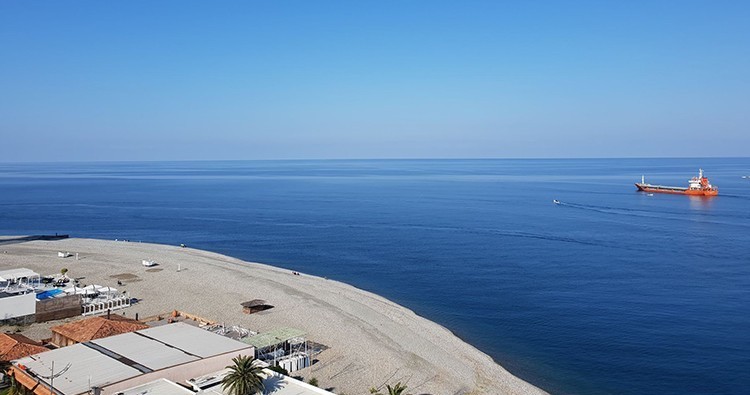Int’l study finds Black Sea submarine cable project “promising, feasible” - Economy Ministry

An international study conducted by the Italian consulting company CESI has found the Black Sea submarine cable to be “promising and feasible from both a technical and economic standpoint”. Photo: Nino Alavidze/Agenda.ge
An international study conducted by the Italian consulting company CESI has found the Black Sea submarine cable, an international project that aims to create a new transmission route to deliver green energy from the South Caucasus to Europe, to be “promising and feasible from both a technical and economic standpoint”, the Ministry of Economy of Georgia said on Tuesday.
Vakhtang Tsintsadze, the Deputy Economy Minister, said the project would now enter the “active phase”, involving further studies of the Black Sea bed, followed by the implementation of project works.
The project underscores the Government’s commitment to the country’s energy independence and the development of energy capacities and renewable energies. Various initiatives have been announced in this direction, with an active focus on promoting the production of renewable electricity”, Tsintsadze said.
The project envisions the implementation of a high-voltage underwater transmission network to connect the electrical energy systems of Georgia and Europe. It aims to contribute to strengthening energy security in Europe and the Caucasus region, fostering the development of the renewable energy sector, and increasing transit opportunities between the specified regions.
The study encompassed determining the optimal capabilities of the cable, assessing construction costs, conducting economic analysis, and outlining a project implementation plan and procurement strategy. Additionally, environmental and social issues along the project route were studied, with screening and scoping reports prepared for Georgia and Romania - one of the signatory countries of the project.
The governments of Georgia, Azerbaijan, Romania and Hungary signed an agreement on strategic partnership in green energy development and transmission on December 17, 2022 to pave the way for the development of the Black Sea submarine cable project, with the establishment of a joint subsidiary by the participating countries to oversee it.
Commissioned by the Georgian State Electrosystem, and financed by the World Bank, the study was conducted to identify “possibilities and best ways” for practical implementation of the project, with support from the Ministry.
Environmental and social impact assessments, as well as seabed studies, are planned for 2025-2026, the Ministry said.
 Tweet
Tweet  Share
Share